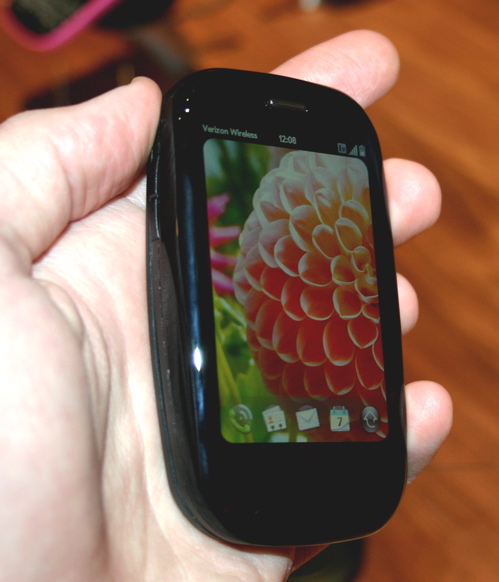
'Free' and 'open' Web video may be impossible after Microsoft backs H.264 only
The good news should be, everyone with a major stake in the outcome of the Web video standards debate has now publicly expressed support for something called "open" or "openness." But that's where the similarities, and even the niceness, end. Yesterday, Apple CEO Steve Jobs personally weighed in on the subject by making it an "us against them" battle, with Adobe and Flash the villains.
Late yesterday, the head of Microsoft's Internet Explorer 9 project, Dean Hachamovitch, followed suit, representing the company whose decisions about what standards to support -- or not support -- have historically steered the course of Web development, for better or worse. Assuming a far more civil tone than Jobs, but with a message no less significant, Hachamovitch solidified Microsoft's stance on high-definition Web video standards by announcing that IE9 would support H.264 for HTML 5 built-in video...and only H.264.

New beta unshackles Mac users from iTunes' sync shortcomings
Windows users have a lot of alternatives to the "mainstream" media players (Windows Media Player and iTunes). However, Mac OS users are not so fortunate. Aside from a couple of minor exceptions, Mac OS is an iTunes-dominated platform.
And as such, it means support for portable media players that don't have an "i" at the beginning of their name is scarce.

Software update may turn all Kindle users into a cloud-based book club
Today, Amazon posted an overview of what Kindle owners can expect in its version 2.5 software update now slated for late May.
This will be the first major feature upgrade to Amazon's e-paper device line since the launch of the Kindle DX last year. After the launch of that model, there was a single software update, which moderately improved the user experience by stretching battery life and adding native .PDF support.

Microsoft aims to embed Media Center directly into HDTVs
"More and more people are getting excited about the opportunity of what PCs can do for them in their living rooms to improve their entertainment experience." That was the message I was getting as far back as 2005, as companies including AMD, Intel, Microsoft, and yes, even Sun were exploring form factors for "entertainment PCs." Soon, we'd be seeing brands like Intel Viiv, AMD Live, and Microsoft TV at a store near you.
It's five years later, and reality has officially set in. "Most people, from a consumer perspective, would not like to have a PC in their living room," said Irena Andonova, the director of product management for Windows Embedded 7 at Microsoft -- the company where entertainment PCs were once all the rage. Today, with HDTV manufacturers embedding Internet connectivity and versatile functionality directly into their sets, the PC is just one more box. Microsoft realizes that now, so with Windows Embedded 7 -- which released to manufacturing Tuesday -- it's aiming to put the operating system and the media player in the TV where it now says they belong.

Ubuntu 10.04 LTS gives Linux even more mainstream appeal
Download Ubuntu 10.04 "Lucid Lynx" LTS from Fileforum now.
As expected, Canonical today released the latest long-term support version of Ubuntu (v. 10.04, a.k.a., "Lucid Lynx"). This release carries considerably more weight than the usual bi-annual Desktop and Server updates because long-term support (LTS) come only biennially -- once every two years. They typically don't get treated to experimental feature additions, and are meant to be more stable. They do, however, include three years of package support for Ubuntu Desktop and five years for Ubuntu server. The last LTS versions Canonical released were "Dapper Drake" (4.0) in 2005 and "Hardy Heron" (8.04) in 2008.

Steve Jobs' 'Thoughts on Flash' is just smoke
Apple CEO Steve Jobs' "Thoughts on Flash" memo is a rare glimpse into the mind of the rarest breed: A high-tech, cult figure who isn't a geek. Apple posted the nearly 1,700-word essay earlier today, in response to the ongoing debate about Adobe Flash on iPhone OS devices. Or perhaps more directly: Adobe's April 20 announcement that it had abandoned Flash development for iPhone OS devices; primary focus is shifting to Android.
The Flash debate got ugly earlier this month after Apple announced iPhone OS 4 would not support the Adobe technology and made developer agreement changes that prohibited use of cross-platform tools that could enable rival platforms like Adobe's. Last week, Mike Chambers, Adobe's Flash platform Principal Product Manager for developer relations, sounded the retreat in a blog post.

Yet another major browser hits Android as Skyfire 2.0 beta launches
Skyfire, the third party mobile browser famous for its ability to handle nearly every major browser plug-in and web technology has finally arrived in the Android Market today.
At the beginning of April, the browser was released in a very limited alpha program which received overwhelming interest from users. The Skyfire team said it had to stop taking email requests for the software almost immediately because of the sheer volume of messages. Well, those masses now have something they can sink their teeth into.

Oh really? NAB head suggests to Congress FCC's Broadband Plan is 'voluntary'
There are a handful of issues of contention that broadcasters (who transmit content over the public airwaves) have with the Federal Communications Commission's Broadband Plan. One such outstanding dispute concerns the FCC's proposed reallocation of unused digital spectrum from broadcast to broadband purposes -- a way to get at least some of the estimated 180 MHz of spectrum wireless operators say they need, without another complete re-auction.
On Tuesday, FCC Chairman Julius Genachowski announced the formation of a so-called Spectrum Task Force, which many see as his way of connecting the necessary dots between the public airwaves (the FCC's natural purview), wireless, and the Internet (the FCC's disputed territory). In his announcement yesterday, the Chairman said, "To lead the world in mobile, the FCC must ensure that our nation's spectrum is being put to its highest and best use."

Actual Analysis: NPD's Ross Rubin on the formula for making HP + Palm work
For the record, the connection between Hewlett-Packard and Palm, Inc. was not something most of us saw coming, and which very few reputable observers of this industry bet their reputations on.
In retrospect, one sees now some of the obvious connections we missed then: the fact that Todd Bradley, now chief of HP's Personal Systems Group, was Jon Rubinstein's predecessor as CEO of Palm; the fact that HP's smartphone market share fell last year to below one hundredth of one percent, and yet Bradley was still charged with the task of devising an instant comeback; and the fact that HP's latest iPaq, announced last December (pictured below) bears so little distinction from a BlackBerry Curve, Samsung BlackJack, or Motorola Q that it may as well be called the "Me2."

Steve Jobs: Why Flash sucks
Today, just as Adobe released a preview of Flash Player for Mac OS X that features H.264 video decoding, Apple CEO Steve Jobs released a letter called "Thoughts on Flash," which explains the many reasons why there's no Flash support on any of Apple's mobile devices, and why H.264 is a better format.
The letter is emblematic of Apple's increasingly verbal approach to the frantically interested but highly misunderstanding public: "Adobe has characterized our decision as being primarily business driven -- they say we want to protect our App Store -- but in reality it is based on technology issues. Adobe claims that we are a closed system, and that Flash is open, but in fact the opposite is true. Let me explain."

A gentle hands-on with Mozilla's first browser for Android
Android apps crash. There's no other way to say it. If you spend a lot of time installing and testing new apps on Android devices, you know it.
So when Mozilla officially rolled out its first public version of the Fennec mobile browser for Android with various warnings that it is a very early "pre-alpha," with experimental features that could require hard resets, I thought I knew what I was in for.

Google's good news: Microsoft cannibalizes Yahoo search share
Microsoft sure is gaining search share fast. Too bad it's cannibalizing Yahoo rather than gaining on Google.
Today, Nielsen released March 2010 US search share numbers, and, whoa, are they good news-bad news for Microsoft. The good news: Microsoft search share is 12.2 percent. The bad news: Microsoft closed the gap on Yahoo to within 1.2 percent. Yahoo's search share is 13.4 percent.

Actual Analysis: HP buys Palm, and the earth does move
HP's just-announced $1.2 billion offer to buy Palm is as close as this industry gets to a lifejacket. Despite the fact that the deal won't suddenly vault Palm back to the top of the mobile market it practically created, HP's ultimate goals for its latest acquisition extend well beyond the near-term.
It's been clear for years that Palm simply couldn't make a go of it on its own -- that if the company hoped to remain relevant in today's fast-evolving mobile marketplace, it needed to be acquired. The announcement earlier this spring that Palm was seeking a buyer and speaking with interested parties confirmed that it was only a matter of time before a deal was struck.
![One of the few official photos of HP's 'Slate' PC, as yet unnamed. [Courtesy HP]](https://betanews.com/wp-content/uploads/media/43/4326.jpg)
HP execs: Fate of Palm's R&D team, iPaq, Pre, and Pixi still undecided
If financial analysts had concerns about Hewlett-Packard's ability to resurrect Palm's flailing fortunes, those concerns may have actually deepened following HP's announcement call with analysts Wednesday afternoon.
During the call, which lasted under 20 minutes, Executive Vice President Todd Bradley told analysts that he expects HP's track record for building out communications infrastructure with eight of the world's ten largest telecom carriers will earn HP points when making its case for carrying Palm products.

HP buying Palm is like Ke$ha marrying John McCain
Exactly, what do they have in common? HP-Palm is a merger of necessity. HP needs to jumpstart (for the umpteenth time) its mobile strategy and Palm needs to be bought by anybody or perhaps die. Hey, there is anybody and then there's anybody else would be better. In a parallel universe the situation is different. HP is doing what I said Microsoft should: Buy Palm, and what a steal HP is getting for $1.2 billion.
Perhaps I'm missing something about things in common. While I was writing this post, Walter Lounsbery tweeted to me: "HP and Palm both share that has-been entrepreneurial spirit." Ouch! Get the Neosporin! And a Band-Aid! Alex Scoble poured salt on the wound. In a response to me at FriendFeed: "They both sell mobile devices...just no one knows that HP sells mobile devices." Whoa, put away that baseball bat, Alex!